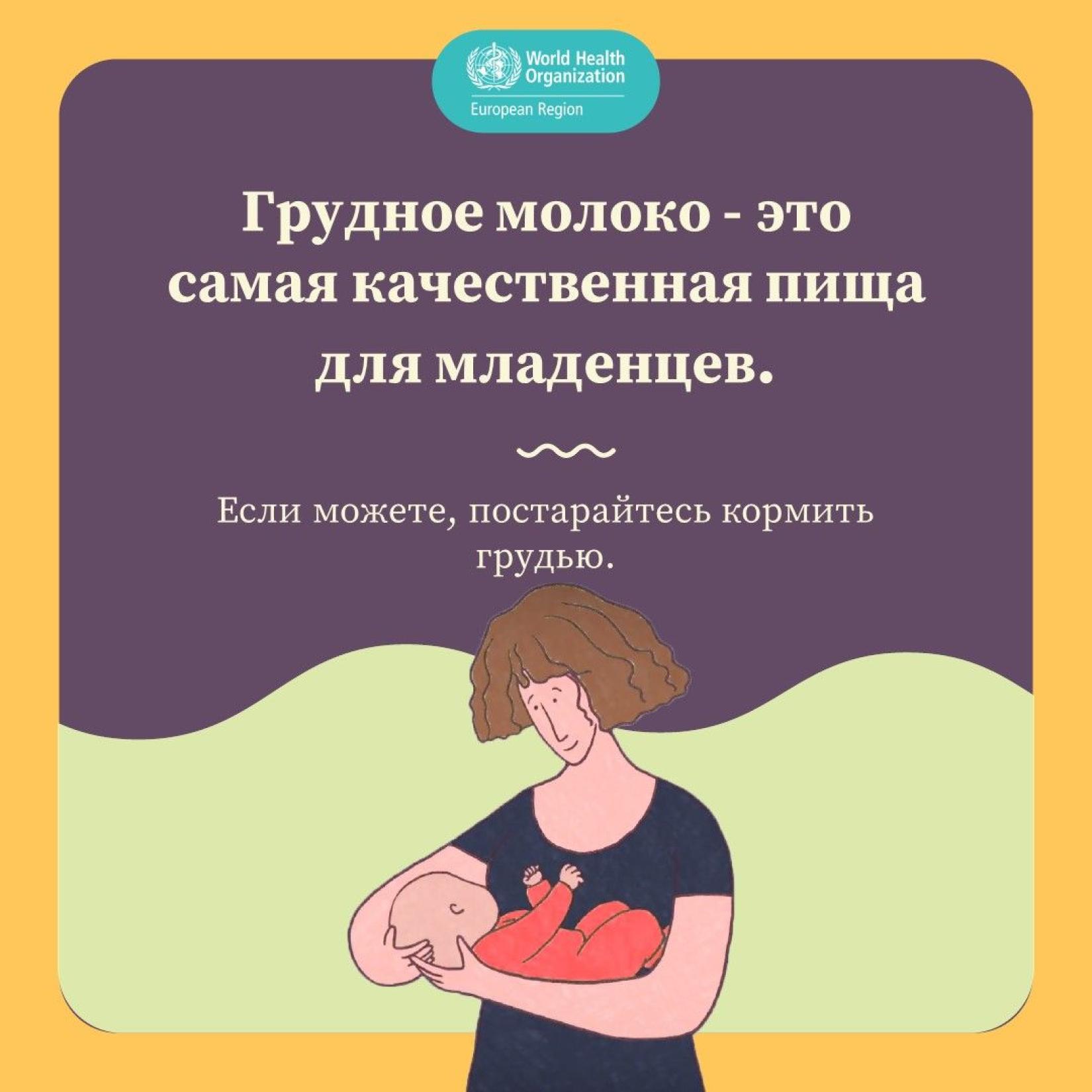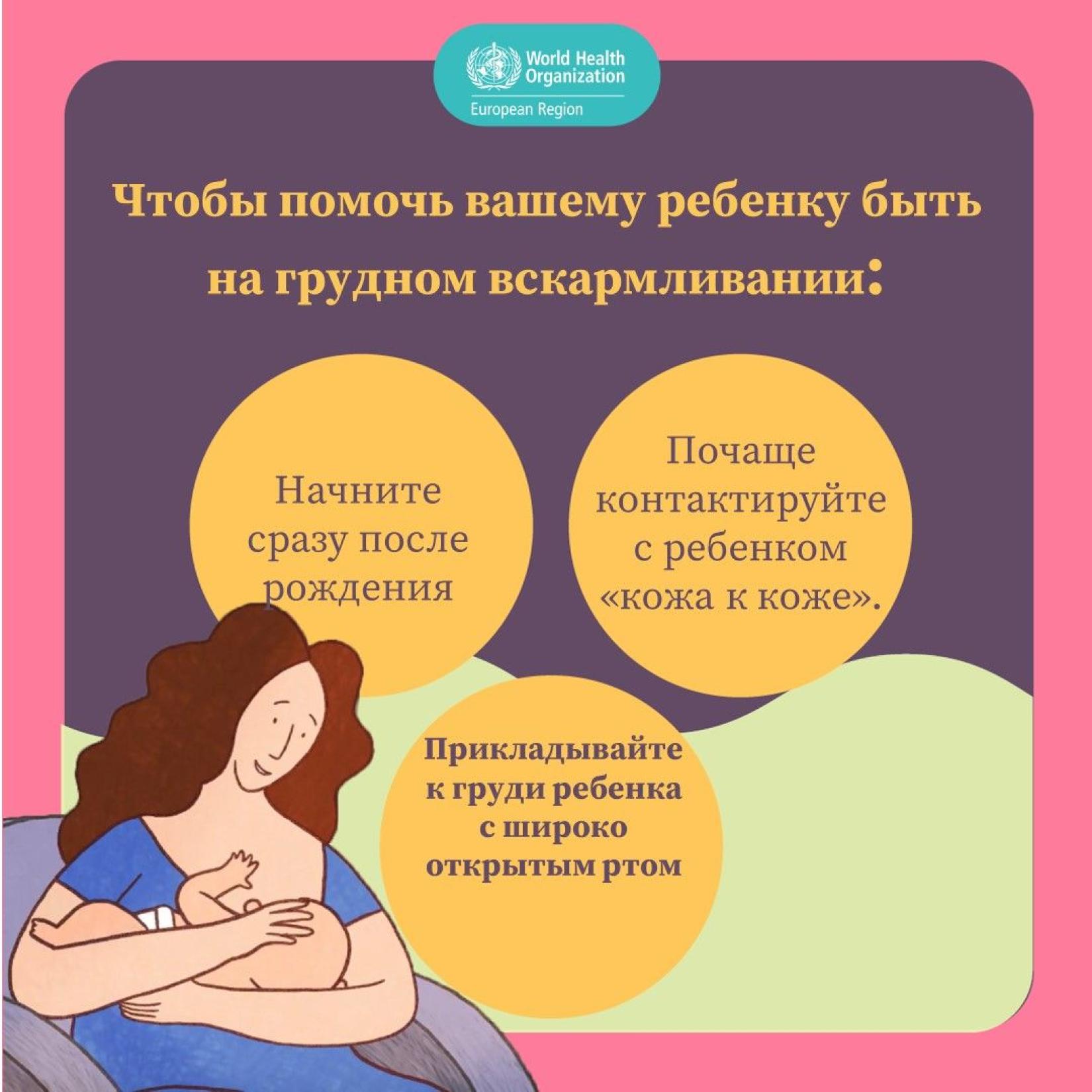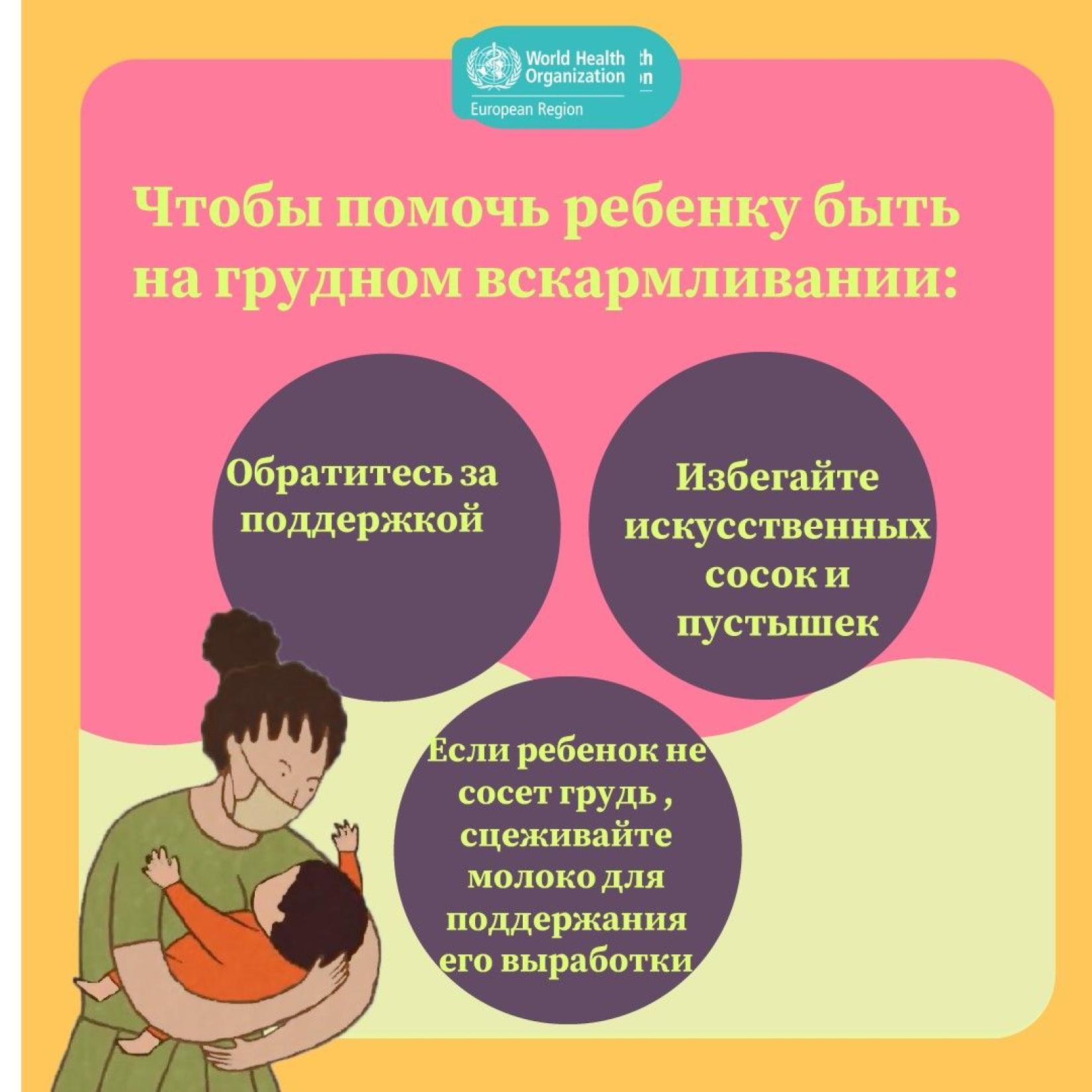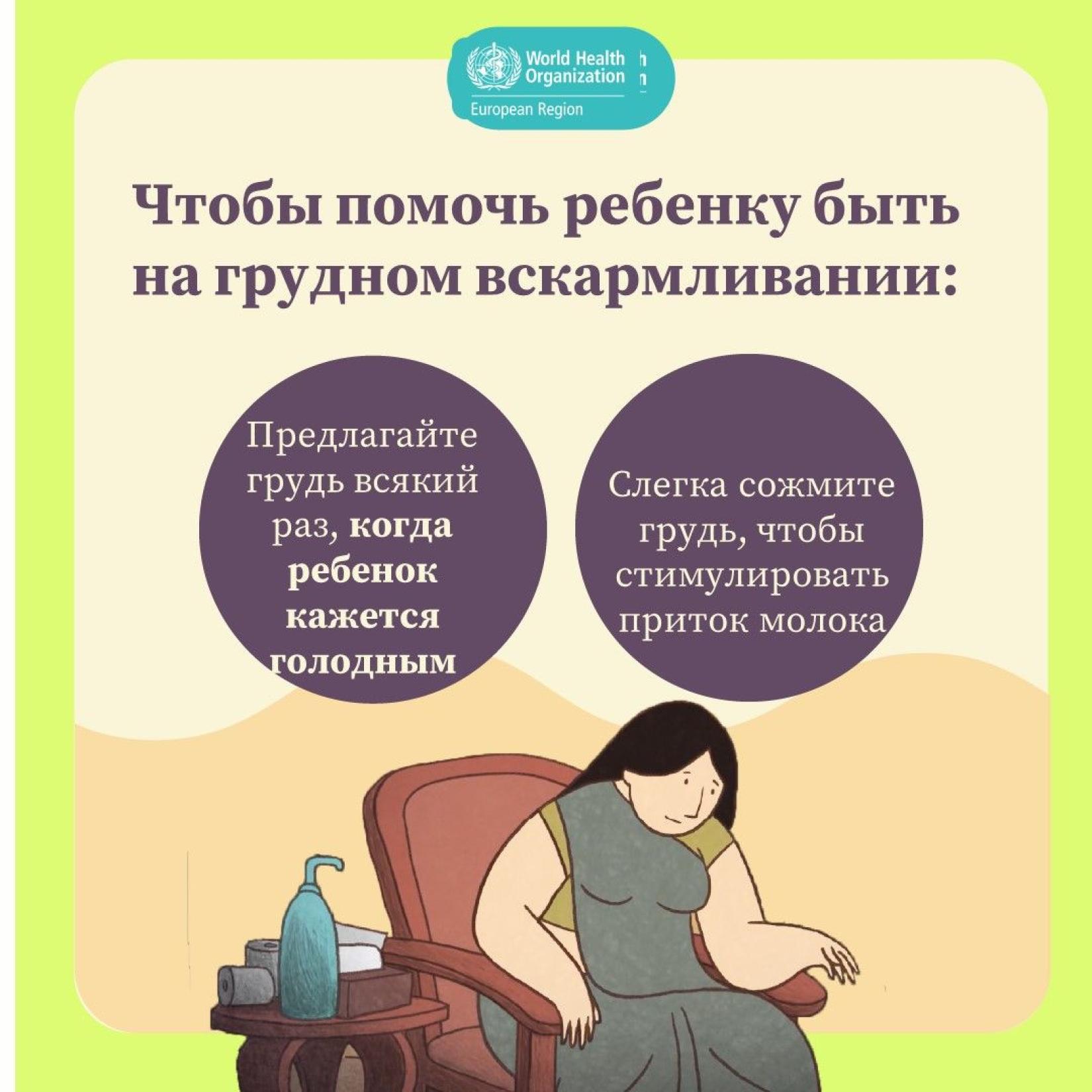World Breastfeeding Week
Breast milk saves from obesity, normalizes weights of mother and child, reduces the risk of breast cancer and strengthens the immune system.
- Perhaps everyone knows about the benefits of breastfeeding. However, according to the MICS survey conducted in Belarus in 2019 by the National Statistical Committee of the Republic of Belarus and UNICEF, only 24 per cent of women confirmed that they had the opportunity to initiate breastfeeding early (within the first hour of birth), and only 22 per cent confirmed exclusive breastfeeding for the first six months of life. WHO and UNICEF recommend 100% and 60%, respectively.
Why is it so and what can be done?

Valiantsin Rusovich, Public Health Officer, WHO Country Office in Belarus: “WHO and UNICEF place special emphasis on two indicators: “early initiation of breastfeeding” and “exclusive breastfeeding up to 6 months.” First, initiation of breastfeeding within an hour of birth helps uterine smooth muscle contract hence reducing the risk of postpartum haemorrhage. Second, it helps stimulate breastfeeding exponentially. Although during the first initiation of breastfeeding only the colostrum (first milk) is produced, it is very important for the baby's immune system as it contains a great number of maternal derived antibodies that protect child's organism during the first 2-3 months of life.
The second indicator is exclusive breastfeeding up to six months of life. WHO and UNICEF encourage to feed infants only breast milk (giving not even water) until six months of age or, more precisely, up to five months and 29 days inclusive. This is convenient for both parents and children and is a great benefit.

When it comes to early initiation of breastfeeding, we mainly need to better implement the obstetric protocols that provide for breastfeeding and never forget it at the national level. In fact, according to the 2019 MICS survey, only 24 per cent of women in a representative sample reported early initiation of breastfeeding. It is remarkable that the worst record was in Minsk (16%) and the best one in Grodno region (35%). It is true that almost all infants born vaginally are given to their mothers, so that they could hold them after delivery. Still in many cases there may be not enough time and the birthing room should be immediately provided to the next patient, so no time for a longer breastfeeding is available even though the current protocols provide for it.
As for the second factor, that is low proportion of infants receiving exclusive breastfeeding up to six months of life and only 22 per cent of women in Belarus following this recommendation while WHO and UNICEF aim at 60%, there are many reasons for this. Many mothers and grandmothers, in particular those belonging to the post-war generation, are afraid that the baby is undernourished when exclusively breastfed up to six months. They do their best to make sure the baby gains weight and doesn’t look skinny. And indeed, in case of early transition to formula feeding, when fed from a bottle, it is easier for the baby to receive milk pouring out from large holes compared to breastfeeding; hence the baby eats more and gains weight. Everyone is happy that the baby is hale and hearty. However, this generates a threat of a sustained obesity, first in childhood, then in adolescence and, presumably, in adulthood and negative consequences associated with it.
One more reason: the current protocols developed for paediatricians and general practitioners provide a very ambiguous recommendation on adding solid food to children's diets as early as at the age of four months. It diverges from the latest WHO and UNICEF recommendations. Indeed, 40 per cent of women in a representative sample reported that within six months of birth they mainly fed their children breast milk with complementary feeding with soft and semi-solid foods.

There are a number of other factors in favour of breastfeeding at the level of public health that are less relevant to Belarus. Parental leave is very short in many countries, which makes young mothers return to work sooner and stop breastfeeding.
Paediatricians, general practitioners and home-visiting nurses do not always have time enough to support breastfeeding mothers. Additionally, there is a strong impact of such problems as women's overload and postpartum depression, which is a wide-spread reason to stop breastfeeding. This is where additional support from the relatives is required as well as the intervention of medical professionals, if needed.

Why breastfeeding?
Benefits for the baby:
- breastfed babies have better immune system, are less likely to suffer from diarrhoea and respiratory infections. Breast milk prevents infectious diseases as it enables transmission of maternal derived antibodies to the baby;
- breast milk protects babies from fast weight gain and provides the foundation for the prevention of cardiovascular diseases and cancer.
Valiantsin Rusovich “Rapid weight gain resulting from bottle feeding increases the risk of sustained obesity in childhood, adolescence and then adulthood. We know that overweight in adults increases the risk of non-communicable diseases, including cardiovascular diseases, cancer, diabetes, etc. It turns out that the foundation for either preventing or increasing the risk of these diseases is laid when mothers choose between breastfeeding and formula”.

Benefits for mother:
- breastfeeding protects from some types of cancer (e.g., reduces the risk of developing breast cancer, invasive ovarian cancer),
- breastfeeding enables faster recovery after childbirth and mother's weight normalization.
Valiantsin Rusovich: "Breastfeeding is a natural process that is very important both for the health of infants and young mothers and we should encourage it by all means. Absolute majority of women, provided they have enough support, can feed infants with breast milk regardless of their specific built, which makes no difference for breastfeeding function. Mixed feeding is some compromise that involves risks associated with formula feeding and lactation cessation.”
Breast milk is a real gift of nature that supports health and immune system of a child from birth, increases bonding with mother and benefits mother's health. It is no doubt that breastfeeding establishment and support require efforts from both the whole family and medical professionals. But the efforts will be generously repaid.


